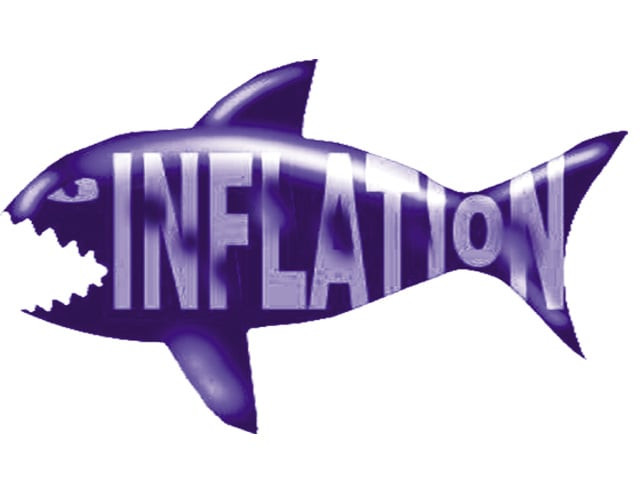Inflation hits highest level in 16 months
CPI rises 9.1% in Oct due to increase in utility, essential goods’ prices.

8.4% is the average inflation in July to October of the current fiscal year compared to the annual target of 8%. DESIGN: ASAD SALEEM
The Pakistan Bureau of Statistics – which determines the increase and decrease in prices of a basket of 487 goods and services – reported on Friday that the Consumer Price Index (CPI) rose 9.1% in October over the same month of previous year. In September this year, inflation stood at 7.4%.
It was the biggest rise in inflation in months, underlining the inflationary pressures due to constant increase in prices of utility services and other essential goods.

According to the PBS, electricity prices for domestic consumers rose 15.82% in October, far lower than the average increase of about 30% the PML-N government announced to recover the cost of electricity and meet a condition of the IMF loan programme.
Explaining the bureau’s move, a PBS official told The Express Tribune that 15.82% was the average increase in electricity prices for the entire country that also covered consumers of 1 to 200 units and the Karachi Electric Supply Company, who were exempted by the government. Owing to the rigid methodology, he said, the PBS came up with the figure by taking into account all consumers in the country.
However, the Ministry of Finance has its own version. Electricity distribution companies have not yet issued bills for October, then how can the PBS consider the impact in monthly inflation figures, asked finance ministry spokesman Rana Assad Amin.
Similarly, prices of high speed diesel and petrol were also calculated as an average and put under the category of motor fuel, showing only a 2.6% increase. In October, the government had increased diesel price by 4.3% and petrol price by 3.8%.
Many users of PBS data always question the authenticity of inflation figures. The previous government had decided to undertake reforms in the organisation, but did not give it full autonomy. Those sitting at the helm of affairs in the PBS are retired bureaucrats, who are vulnerable to political pressure.
In October, the commodity group covering prices of housing, water, electricity, gas and fuels recorded an increase of 9.5% over the same period last year, according to the PBS. The group’s weight in the CPI basket is about 29.4%.
Prices of perishable food items rose 18.6% while the clothing and footwear group increased 14.6%.
For the current fiscal year 2013-14, the government has set the inflation target at 8%. But independent economists suggest that administrative and monetary measures will take inflation to 12%.
Average inflation in the first four months (July-October) of the current fiscal year stood at 8.4%. Month-on-month inflation soared 2% in October compared to September, which the experts described as alarming.
Despite a significant increase in the general inflation rate, non-fuel and non-food inflation – called core inflation – decelerated to 8.4% in October over 8.7% in September. Core inflation is taken as an indicator that is shielded from seasonal price shocks due to exclusion of volatile food and energy prices.
Published in The Express Tribune, November 2nd, 2013.
Like Business on Facebook, follow @TribuneBiz on Twitter to stay informed and join in the conversation.


















COMMENTS
Comments are moderated and generally will be posted if they are on-topic and not abusive.
For more information, please see our Comments FAQ